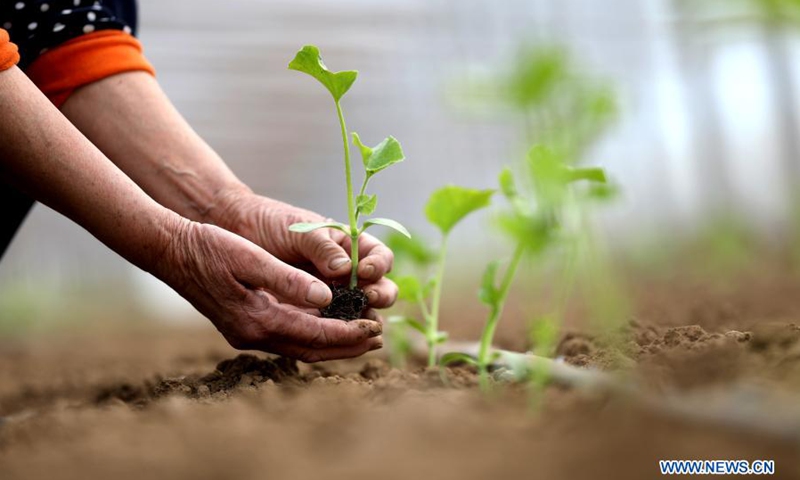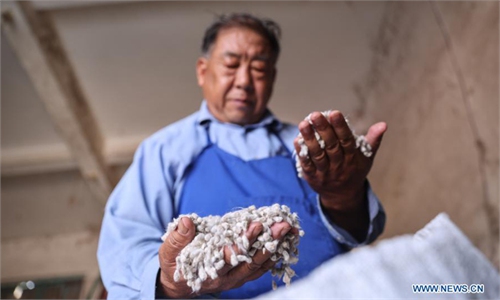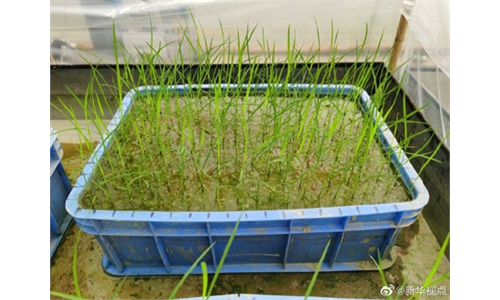
A farmer plants melon seedlings in Xingtai City, north China's Hebei Province, March 10, 2021.(Photo: Xinhua)
China will conduct a national survey of seeds and animal genetic resources -- including poultry and aquatic products -- within the next three years, the Ministry of Agriculture and Rural Affairs said on Wednesday, the first concrete step in a broad effort to break through the bottleneck of foreign-controlled resources and ensure China's food security.
The government has vowed to boost grain output and improve food security. According to the "No.1 Central Government Document" unveiled in February and the 14th Five-Year Plan (2021-25), China will give more importance to developing agricultural seed industry, which it said is the foundation for agricultural modernization.
There are to be reports on China's crops, poultry and aquatic products that will compile detailed seed and animal genetic resources information, including the number of species, quantities, distribution areas and characters.
Relevant institutes will develop methods to protect and rescue endangered species, and to build a comprehensive statistical database. The entire census is scheduled to be finished by 2023.
"China's grain resources are mostly based on domestic species, but foreign species such as the Sanyuan hog -- which is the offspring of three different foreign species -- account for the majority of China's pig-breeding industry and meat market," Jiao Shanwei, editor-in-chief of cngrain.com, a website specializing in grain news, told the Global Times on Wednesday.
The ministry said that the essence of seed competition is technology competition, but it also admitted that there is a gap between China's seeds and the most advanced ones on the international level, and the first step to close the gap is determining what China possesses at present.
"Agriculture is a relatively fragile sector with high costs and low profits, which needs more support from the government," said Jiao. He noted that "fighting for a turnaround" in China's seed industry within three years may be challenging, but this can be overcome by consumers' confidence and the authorities' guidance.



